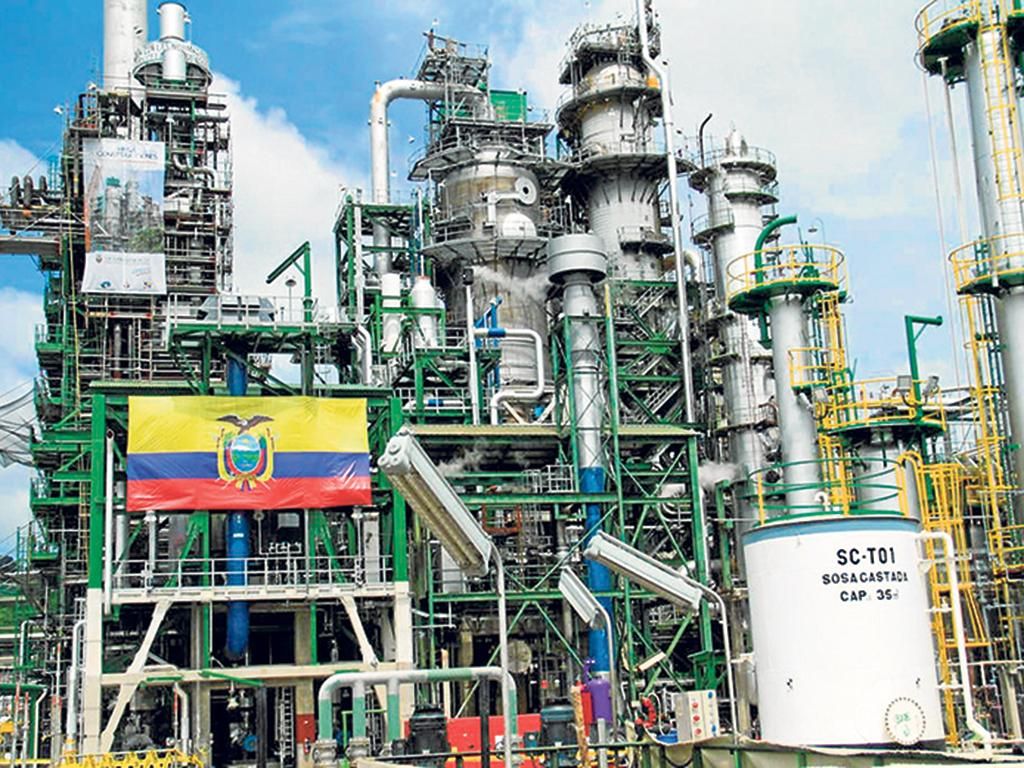The price of WIT oil, a reference for Ecuador, rose over one hundred dollars, but it is volatile.
Six days after the beginning of the Russian invasion of Ukraine, the price of oil increased again yesterday. The price of Texas Intermediate Oil (WTI) skyrocketed from $100 to $106, or 11% more.
The reference barrel in the United States and for Ecuador (WTI) had reached $100 last Thursday, its highest price since 2014. In that year, the market presumed a potential reduction in global energy supply derived from the geopolitical conflict in Ukraine — when Russia took Crimea from Ukraine.
Why is oil going up?
Former energy minister and oil analyst Fernando Santos says that the rise is permeated by fear in the markets. Santos says that it is important to take into account that Russia is the second largest producer of oil and gas in the world and “any interruption of supply from Russia —and its derivatives— would produce a shortage of oil in the world.”
And that pause is largely due to the fact that both the European Union, the United Kingdom and the United States have announced that they will impose a series of financial sanctions on Russia, he said. The sanctions were announced, above all, against politicians, Russian entities and two of its largest financial institutions, the military bank Promsvyazbank and the state bank VEB. That bank, for example, manages the debt of the State and the pension funds.
Those sanctions, according to US President Joe Biden, have a clear path: that Russia cannot “make money from the West and will not be able to negotiate its debt in our markets or in European markets,” Biden said during a press conference. With those restrictions, in particular, a limit is set for Russia and its access to Western capital markets.
Faced with this scenario that still has no direction, explains Santos, oil market operators are scared and will try to “buy oil where it exists.” For the former energy minister, the increase is rather a psychological effect due to fear, rather than a real fact. “So far, no oil fields have been affected,” he says.
Santos, like many analysts, understands the conflict between Russia and Ukraine as a geopolitical one, as a message from Russian President Putin against the North Atlantic Treaty Organization (NATO), an organization that stated that its 29 member countries will support the Ukrainian defense forces. The increase in the price of oil then, says Santos, “is an unfortunate consequence of a conflict that is taking lives.”
But it won’t be sustained, he says. Santos believes the increase in oil prices will only be temporary. “There is no real foundation between supply and demand. And actually, it will last as long as the conflict between Russia and Ukraine remains at its peak,” he said. He also says that it was “the worst time for the invasion” because both the price of Brent crude —which is another of the world benchmarks in addition to WTI— and that of WTI were already growing. “Rather, what is happening is that inflation is unleashing on a global scale,” says Santos.
What it means for Ecuador
Ecuador is an oil producing country and the news of an increase would seem to be positive, but it is important to observe the whole context and put it in balance.
“Although it increases the price of a barrel for export, it is negative. Ecuador is a country in which foreign trade represents half of the Gross Domestic Product. The cargo shipments that leave Ecuador are going to see massive fuel price increases. It will cost us a lot,” explains the analyst.
Santos also says that although Russia is geographically far from Ecuador, it has become an “important buyer of Ecuadorian goods, such as shrimp. But in this context, the market will be closed. Nobody is going to export,” he insists.


0 Comments